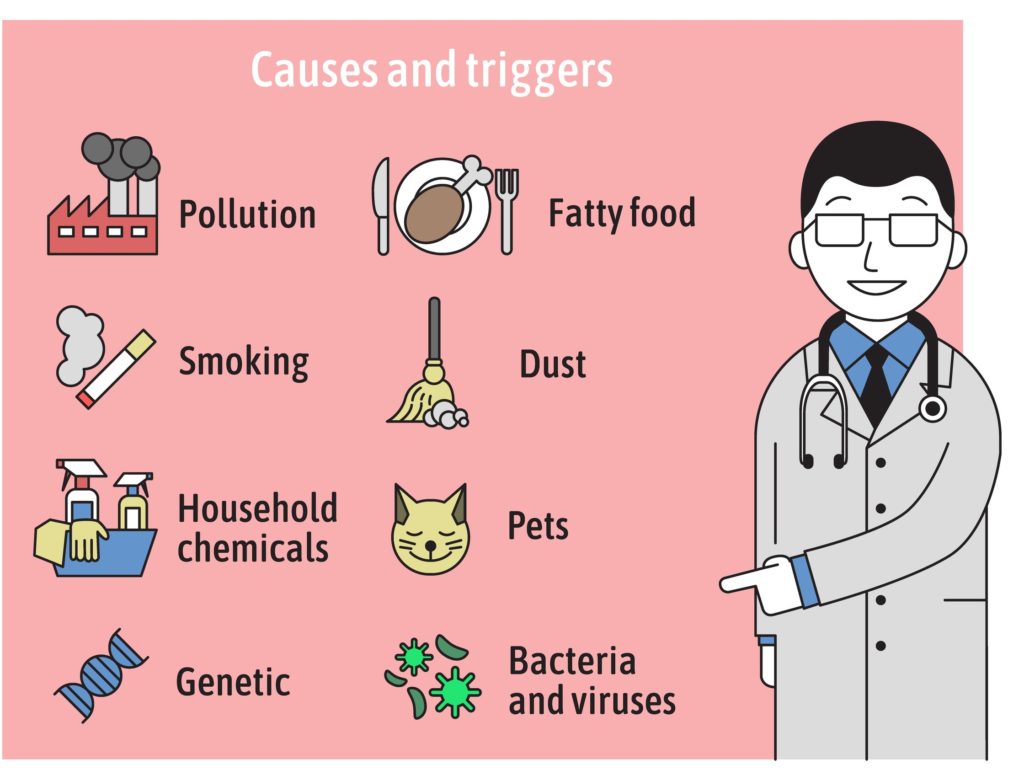 Source: bing.com
Source: bing.comAsthma is a common condition that affects millions of people, including babies. It is a chronic disease that affects the airways and causes difficulty breathing. While there are many factors that contribute to the development of asthma, the exact cause is not known. However, research has revealed that certain factors can increase the risk of a baby developing asthma.
Table of Contents
Genetics
One of the most significant risk factors for developing asthma is genetics. If a baby has a family history of asthma, he or she is more likely to develop the condition. Research has shown that genes play a critical role in determining a baby’s risk for developing asthma. In fact, children with one parent who has asthma have a 25% chance of developing asthma themselves, while children with two parents who have asthma have a 50% chance.
Environmental Factors
Environmental factors can play a big role in the development of asthma in babies. Exposure to certain irritants, such as cigarette smoke, pollution, and allergens, can increase a baby’s risk of developing asthma. Babies who are exposed to these irritants before or after birth are more likely to develop asthma than those who are not exposed. Additionally, exposure to viral infections and respiratory infections in early childhood can increase the risk of developing asthma.
Maternal Factors
Maternal factors can also contribute to the development of asthma in babies. Studies have shown that babies who are born to mothers who smoked during pregnancy are more likely to develop asthma. Additionally, babies who are born prematurely are at a higher risk of developing asthma than those who are born full-term. Maternal stress and anxiety during pregnancy can also increase the risk of asthma in babies.
Dietary Factors
Dietary factors can also play a role in the development of asthma in babies. Studies have shown that a diet low in fruits and vegetables and high in processed foods can increase the risk of asthma. Additionally, babies who are not breastfed are at a higher risk of developing asthma than those who are breastfed. Breast milk contains nutrients and antibodies that can help protect babies from respiratory infections and other factors that can increase the risk of asthma.
Treatment and Prevention
While there is no cure for asthma, there are treatments available that can help manage the symptoms. Babies with asthma may be prescribed medications such as bronchodilators or steroids to help open up their airways and reduce inflammation. Additionally, avoiding exposure to irritants and allergens can help prevent asthma attacks. Breastfeeding and a healthy, balanced diet can also help reduce the risk of asthma in babies.
 Source: bing.com
Source: bing.comConclusion
In conclusion, asthma is a common condition that can affect babies. While the exact cause is not known, there are many factors that can increase the risk of developing asthma. Genetics, environmental factors, maternal factors, and dietary factors can all play a role in the development of asthma in babies. While there is no cure for asthma, there are treatments available that can help manage the symptoms. Avoiding exposure to irritants and allergens, breastfeeding, and a healthy, balanced diet can also help reduce the risk of asthma in babies.
Frequently Asked Questions
Q: Can asthma be cured in babies?
A: While there is no cure for asthma, there are treatments available that can help manage the symptoms.
Q: Is asthma genetic?
A: Yes, genetics play a critical role in determining a baby’s risk for developing asthma.
Q: Can environmental factors cause asthma in babies?
A: Yes, exposure to certain irritants, such as cigarette smoke, pollution, and allergens, can increase a baby’s risk of developing asthma.
Q: Does breastfeeding reduce the risk of asthma in babies?
A: Yes, breastfeeding can help reduce the risk of asthma in babies. Breast milk contains nutrients and antibodies that can help protect babies from respiratory infections and other factors that can increase the risk of asthma.
Q: Can stress during pregnancy increase the risk of asthma in babies?
A: Yes, maternal stress and anxiety during pregnancy can increase the risk of asthma in babies.
